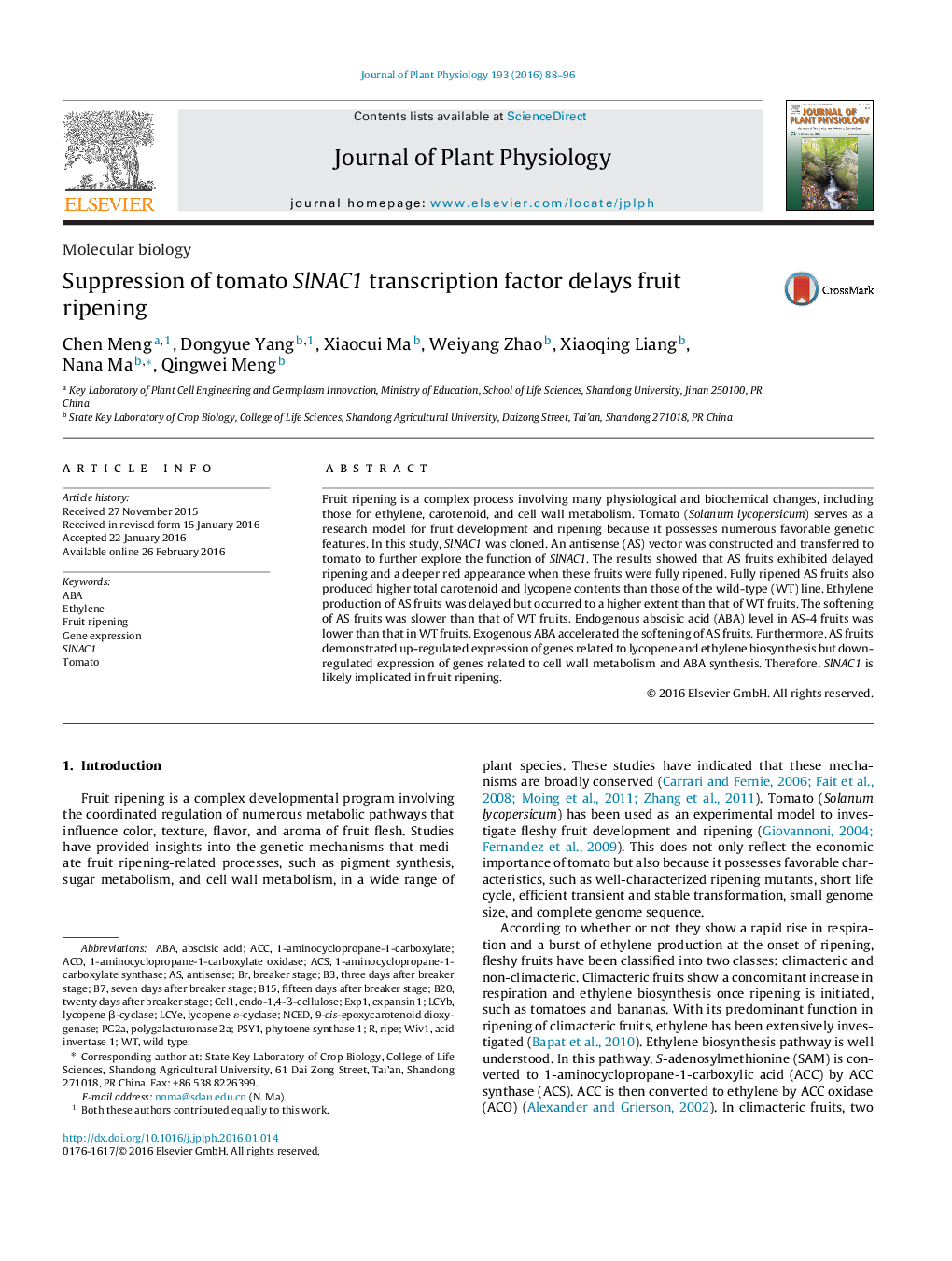| Article ID | Journal | Published Year | Pages | File Type |
|---|---|---|---|---|
| 2055455 | Journal of Plant Physiology | 2016 | 9 Pages |
Fruit ripening is a complex process involving many physiological and biochemical changes, including those for ethylene, carotenoid, and cell wall metabolism. Tomato (Solanum lycopersicum) serves as a research model for fruit development and ripening because it possesses numerous favorable genetic features. In this study, SlNAC1 was cloned. An antisense (AS) vector was constructed and transferred to tomato to further explore the function of SlNAC1. The results showed that AS fruits exhibited delayed ripening and a deeper red appearance when these fruits were fully ripened. Fully ripened AS fruits also produced higher total carotenoid and lycopene contents than those of the wild-type (WT) line. Ethylene production of AS fruits was delayed but occurred to a higher extent than that of WT fruits. The softening of AS fruits was slower than that of WT fruits. Endogenous abscisic acid (ABA) level in AS-4 fruits was lower than that in WT fruits. Exogenous ABA accelerated the softening of AS fruits. Furthermore, AS fruits demonstrated up-regulated expression of genes related to lycopene and ethylene biosynthesis but down-regulated expression of genes related to cell wall metabolism and ABA synthesis. Therefore, SlNAC1 is likely implicated in fruit ripening.
